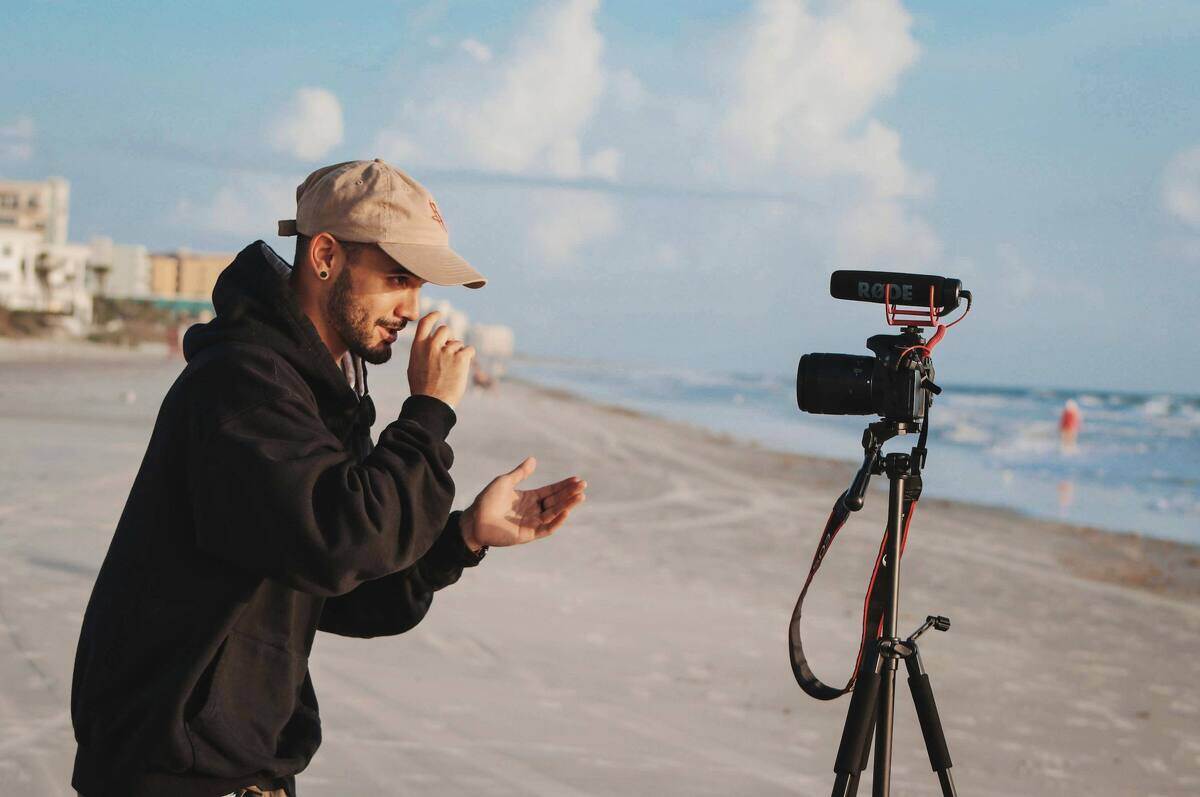Hospitality Influencer Marketing: Utilizing Micro & Nano Influencers
The hospitality industry is evolving rapidly, with digital trends reshaping how brands connect with travelers. As highlighted in2025 Travel Trends:...
4 min read
The Travel Foundry Updated on December 30, 2025
-1.jpg)
Boutique hotels across North America are navigating a highly competitive market. Global chains are investing heavily in digital visibility, and short-term rentals like Airbnb continue to pull travelers away from traditional lodging.
In this crowded space, boutique hotels face a pressing question: how do we stand out without the marketing budgets of global brands?
The answer lies in content marketing. Instead of relying on paid ads or price competition, content marketing builds authentic connections with travelers through storytelling, personalization, and value-driven messaging. It attracts guests at every stage of the booking journey, turns marketing into a form of service, and strengthens long-term brand equity.
For investors and owners, this is about more than just filling rooms. Content marketing improves profitability by:
In short: it is the lever that grows both bookings and long-term asset value.
Here are seven ways boutique hotels can make content marketing their most powerful growth tool in 2025.
Travelers want content that feels relevant to their trip, lifestyle, and values. A 2025 Skyscanner Horizons report found that 47 percent of travelers are confident using AI to plan and book trips. That signals an openness to personalization when it is done well.
Boutique hotels can deliver by:
This is more than marketing. Done well, personalization feels like service. Guests who feel understood are more likely to book directly, return, and recommend the property.
Example: Live Oak Lake, a design-driven micro-resort in Texas, targeted the right audience through influencer campaigns that showcased what those guests cared about most. The result was $860,000 in bookings in its first year and a later $7 million sale.
Boutique hotels succeed when they lean into their personality. Guests are not just choosing a room, they are choosing an experience. Content marketing is how you tell the story that makes your property distinct.
Stories can highlight:
This transforms a stay from a transaction into participation in a larger narrative.
Example: Graduate Hotels have built their brand on hyper-local storytelling. In Oxford, Mississippi, the property celebrates football traditions and Southern art. In Berkeley, California, it leans into activism and music. Each property becomes inseparable from its community identity.
Related Reading: For more on aligning brand narratives across every channel, see our blog on Seamless Storytelling.
-1.jpg?width=940&height=529&name=onur-binay-AK67v81mZaA-unsplash%20(1)-1.jpg)
The first time a traveler encounters your hotel may not be on your website, but in a TikTok or Instagram Reel. Travel content on these platforms has surged, especially among Millennials and Gen Z.
Short-form video works best when it is authentic:
Example: The Carlyle in New York City posts Instagram reels of live jazz nights at Bemelmans Bar. These clips do more than show the property, they capture an atmosphere guests want to experience for themselves.
The most persuasive content often comes from your guests. According to CrowdRiff’s 2024 UGC report, 92 percent of travelers trust user-generated content more than brand advertising.
For boutique hotels, this is an opportunity to turn guests into your best marketers.
Practical steps include:
Example: Loews Hotels launched “Travel for Real,” a campaign built entirely from guest Instagram photos. Engagement rose sharply, and the brand’s authenticity resonated with travelers.

Influencer marketing has matured. Micro-influencers, with audiences of 10,000 to 100,000, often drive stronger engagement than celebrities. Their recommendations feel like trusted peer suggestions.
For boutique hotels, micro-influencers are a natural fit:
Example: Live Oak Lake used regional influencers in design and lifestyle niches. The buzz filled bookings and contributed to the property’s valuation (Business Insider).
Related Reading: For frameworks on selecting and partnering with influencers, see our blog on Hospitality Influencer Marketing.
OTAs take commissions of 15 to 20 percent, cutting into margins. SEO-driven content marketing for hotels helps properties capture organic demand and drive direct bookings.
Travelers spend significant time researching before booking. Research from Expedia Group shows that travelers view 141 pages of travel content in the 45 days before booking. Google’s insights confirm that travelers continue to visit travel sites even after booking, and increasingly use tools like Search, Maps, and Lens to plan their trips.
Publishing destination guides, neighborhood itineraries, and long-tail keyword pages gives boutique hotels a direct path to capture this demand. Linking every piece of content to your booking engine ensures SEO translates into revenue.
Today’s travelers want brands that reflect their values. A Booking.com sustainable travel survey found that 75 percent of travelers intend to travel more sustainably in the next 12 months.
Boutique hotels often have an advantage here, with strong ties to their communities and flexibility to adopt sustainable practices. Content makes those values visible.
You can:
Example: 1 Hotels has built its entire content strategy around sustainability. Their stories about eco-conscious operations attract environmentally minded travelers and drive loyalty. Boutique properties can adopt the same approach at their scale.
For boutique hotels in North America, content marketing is the most powerful lever for growth in 2025. It turns marketing into service through personalization, differentiates brands through storytelling, fuels discovery through video, and builds trust through guest voices. It amplifies reach with micro-influencers, secures direct bookings with SEO, and deepens loyalty by showcasing purpose and values.
Content marketing for hotels does more than fill rooms. It builds lasting equity. For operators, it means stronger guest engagement and more direct revenue. For investors, it improves profitability and valuation.
At The Travel Foundry, we help boutique hotels craft and execute content strategies that turn stories into measurable growth.
Ready to see how your hotel’s story can become its strongest asset? Let’s talk.

The hospitality industry is evolving rapidly, with digital trends reshaping how brands connect with travelers. As highlighted in2025 Travel Trends:...

A fresh logo. A shiny new website. Maybe even a renovated lobby. These are the typical hallmarks of a hotel rebrand, but they’re often where the...

Your Marketing Agency Should Be a Competitive Advantage Hospitality marketing once thrived on glossy magazine spreads, bustling travel expos, and...